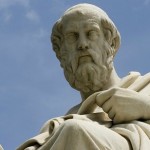We run our website the way we wished the whole internet worked: we provide high quality original content with no ads. We are funded solely by your direct support. Please consider supporting this project.
What is the significance of 1 Samuel 13:13–14?
Because of Saul’s rebellion, Samuel tells him, “The Lord would have established your kingdom over Israel forever but now your kingdom will not continue.”
The biblical narrative depicting God’s dealings with Saul up to this point is predicated on the assumption that God intended to establish Saul’s descendants as the permanent heir to the throne of Israel. He would have followed through with this if Saul had not fallen. If the classical view of divine foreknowledge is correct, however, God couldn’t really have planned on permanently establishing Saul’s throne, for he would have eternally foreknown that this wouldn’t happen.
Category: Q&A
Tags: Open Theism, Q&A
Topics: Open Theism
Verse: 1 Samuel 13
Related Reading

Is Your Christianity Shaped by Plato or the Bible?
The Timaeus is a work that Plato wrote that addresses the questions: “What is that which always is and has no becoming, and what is that which becomes but never is?” (Tim. 28a)? These questions contain one of the most influential – and, in my opinion, one of the most disastrous – philosophical ideas of…

Are all believers baptized in the Holy Spirit?
All Christians believe that all believers are indwelt by the Holy Spirit, but there is debate over whether all believers are baptized in the Holy Spirit. John the Baptist prophesied that while he baptized with water, the one who would come after him (Jesus) would “baptize…with the Holy Spirit and fire” (Matt. 3:11). Jesus reminded…

Five Brief Philosophical Arguments for the Open View
Introduction I believe that sound philosophical arguments support the open view in which God doesn’t foreknow the future free decisions of humans. My main reasons for holding this view are biblical and theological, but since truth is one we should expect that the truths of Scripture and the truths of reason will arrive at the…

Podcast: Is Open Theism Growing in the World?
Greg discusses the place of Open Theism in contemporary Christianity. http://traffic.libsyn.com/askgregboyd/Episode_0149.mp3

How do you respond to 2 Thessalonians 2:11–12?
Of those who disobey the truth Paul says, “…God sends them powerful delusions, leading them to believe what is false so that all who have not believed the truth but took pleasure in unrighteousness will be condemned.” This passage is sometimes cited as evidence that the delusions that unbelievers embrace are as much a part…

What is the significance of Jeremiah 3:6–7?
Regarding Israel, the Lord says “I thought, ‘After she has done all this she will return to me’; but she did not return.” If the future is exhaustively settled in God’s mind, the meaning of this verse is unclear. How could God really think that something was going to happen if he foreknew with absolute…
